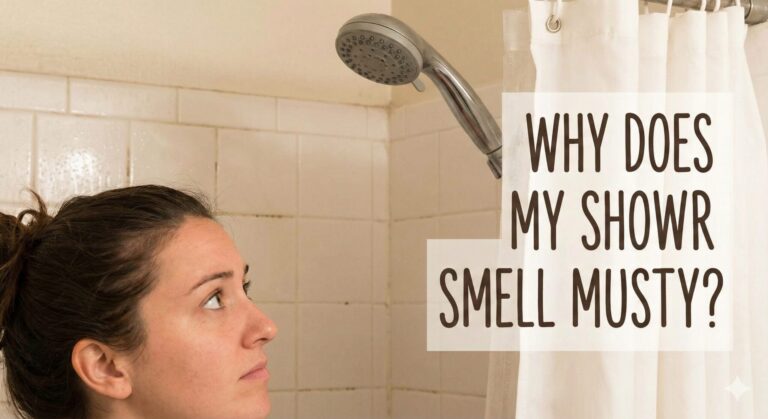The Unspoken Shower Guide: Pool Hygiene and… Other Bathroom Habits Explained
The shower is a private sanctuary. It’s a place where we start our day, wash away our stress, and… ask Google the questions we’d be too embarrassed to ask another human. From public pool etiquette to strange bodily urges, the shower is central to many of life’s most confusing hygiene questions.
Consider this your definitive, judgment-free guide. We’re going to dive into the science to answer these common but unspoken questions. We’ll start with public pool hygiene and then move into the privacy of your own bathroom to tackle an even more sensitive topic. Let’s get started.
Part 1: The Pool Shower Protocol
If you’ve ever been to a public pool, you’ve seen the signs: “Shower Before Entering Pool.” Many of us walk right past them, thinking, “I’m not dirty, why bother?” But I’m here to tell you, as a matter of public health and chemistry, that pre- and post-pool showers are non-negotiable.
Why You MUST Shower *Before* You Swim
The pre-swim shower isn’t really about getting you clean—it’s about protecting the pool’s chemistry and everyone in it. The primary reason is to rinse off the invisible layer of sweat, body oils, deodorant, lotion, and traces of urine that everyone has on their skin.
The Science of Chloramines: When the substances on your skin (which are nitrogen-based) mix with the pool’s chlorine, they create a chemical reaction. The byproduct of this reaction is a class of compounds called **chloramines**. It’s the chloramines, not the chlorine itself, that cause that stereotypical “pool smell,” make your eyes red and itchy, and can irritate your skin and respiratory system. Even worse, chloramines are less effective at disinfecting, meaning more germs can survive in the water.
A quick, 60-second rinse is all it takes to remove most of these compounds from your skin. By doing so, you’re not just being courteous; you’re actively helping to keep the pool cleaner, safer, and more pleasant for yourself and every other swimmer.
Why You MUST Shower *After* You Swim
The post-swim shower is all about protecting your own body. While you were swimming, your skin and hair were soaking in a chemical cocktail of chlorine, chloramines, and whatever bacteria managed to survive in the water.
- Skin Health: Chlorine is excellent at its job, but it doesn’t distinguish between bad bacteria and your skin’s natural, protective oils. It strips these oils away, leaving your skin dry, itchy, and vulnerable to irritation or “pool rash.”
- Hair Health: Chlorine is famously damaging to hair. It can make hair brittle, dry, and for those with lighter hair, cause that dreaded greenish tint. A thorough wash is the only way to get these chemicals out.
A proper post-swim shower, using soap and shampoo, removes these harmful residues, rehydrates your skin and hair, and ensures you leave the pool feeling refreshed, not itchy.
Essential Gear for the Serious Swimmer
To combat the effects of chlorine, using products specifically designed for swimmers makes a world of difference.
TRISWIM Chlorine Removal Swimmers Shampoo
Regular shampoo doesn’t always cut it. This formula is specifically designed to neutralize and remove chlorine, bromine, and salt water from your hair. I’ve found it essential for preventing that post-swim straw-like texture and keeping hair healthy.
Check Price on Amazon
Cetaphil Moisturizing Cream for Dry, Sensitive Skin
After stripping your skin’s oils with chlorine, you need a powerful moisturizer to restore its barrier. Cetaphil is a dermatologist-recommended classic that provides intense, long-lasting hydration without feeling greasy. It’s a must-have in any swim bag.
Check Price on Amazon
Part 2: The Physiology of the Shower
Now, let’s step from the public pool into the privacy of your home bathroom. We’re going to address a set of questions that are Googled with surprising frequency, and we’re going to do it with straightforward science.
Why Does Showering Make Me Have to Poop? The Science Explained
If you’ve ever hopped in the shower only to feel a sudden, urgent need to have a bowel movement, you are not alone. This is not a weird quirk; it’s a completely normal physiological response. It all comes down to your nervous system.
The “Rest and Digest” System: Your body has an Autonomic Nervous System that controls involuntary actions. It’s split into two parts: the “fight or flight” system and the **Parasympathetic Nervous System (PNS)**, also known as the “rest and digest” system. The PNS is activated when you are relaxed. A warm shower is one of the most relaxing things you can do. The heat, the sound of the water, and the quiet solitude all send signals to your brain to activate the PNS. When the PNS is active, it increases **gut motility**—the muscular contractions of your intestines that move waste along. This stimulation is what creates that sudden urge.
Think about it: the same thing often happens after a warm cup of coffee or a large, relaxing meal. It’s the same “rest and digest” system being triggered. So, if this happens to you, know that it’s simply a sign that your body is relaxed and your digestive system is functioning as it should.
So, Is It Normal to Poop in the Shower?
Let’s be very clear here. While the **urge** to poop in the shower is perfectly normal, **acting on that urge** is a different story. In terms of social norms and modern hygiene standards, the answer is no, it’s not considered normal or acceptable behavior. The toilet is designed for this specific purpose for very good reasons.
What Happens If You Poop in the Shower? The Hygienic Reality
This isn’t just about it being “gross.” There are legitimate health and plumbing reasons why this is a bad idea.
- The Health Risk: Human feces contain a host of bacteria, including pathogens like E. coli and Salmonella. While hot water and soap will wash some of it away, you risk contaminating the shower floor, the drain, your feet, your washcloth, and everything else in the enclosure. This creates an unhygienic environment and a risk of spreading bacteria.
- The Plumbing Problem: Household shower drains and pipes are designed to handle water, soap, and hair. They are not designed to handle solid waste. Forcing solid matter down the drain (a practice sometimes crudely called “waffle stomping”) is a recipe for a serious and expensive clog.
In short, the toilet is the only safe and hygienic place for a bowel movement.
Better Hygiene Solutions
If the urge is a frequent issue, consider upgrading your bathroom hygiene to address it at the source. A clean shower is also paramount.
CLR Brilliant Bath Foaming Action Cleaner
For maintaining a truly hygienic shower, you need a powerful cleaner. This one is fantastic for removing soap scum, grime, and disinfecting surfaces. Keeping your shower clean is the first line of defense against any lingering bacteria, regardless of their source.
Check Price on Amazon
LUXE Bidet NEO 120 – Self Cleaning Bidet Attachment
A bidet can be a transformative hygiene tool. It provides a superior clean using water. For those who feel the shower-related urge, using a bidet beforehand can provide that “water and relaxation” stimulus in the correct and most hygienic setting: the toilet.
Check Price on Amazon
Your Unspoken Shower Questions, Answered
Q: Why shower before pool?
A: To rinse off sweat, oils, and lotions from your skin. These substances mix with pool chlorine to create smelly, irritating compounds called chloramines, which also make the chlorine less effective at killing germs.
Q: Why shower after pool?
A: To wash off chlorine and other pool chemicals that can dry out and damage your skin and hair. It also removes any bacteria that may have been in the water.
Q: Why does showering make me have to poop?
A: The warm, relaxing environment of a shower activates your body’s “rest and digest” nervous system (the parasympathetic nervous system). This system increases the muscular contractions in your intestines, creating the urge to have a bowel movement.
Q: Is it normal to poop in the shower?
A: The *urge* to poop in the shower is a normal physiological response to relaxation. However, actually pooping in the shower is not considered normal or hygienic by modern standards.
Q: What happens if you poop in the shower?
A: You risk spreading harmful bacteria like E. coli around your shower and onto your body. You also risk causing serious plumbing clogs, as shower drains are not designed to handle solid waste.








